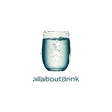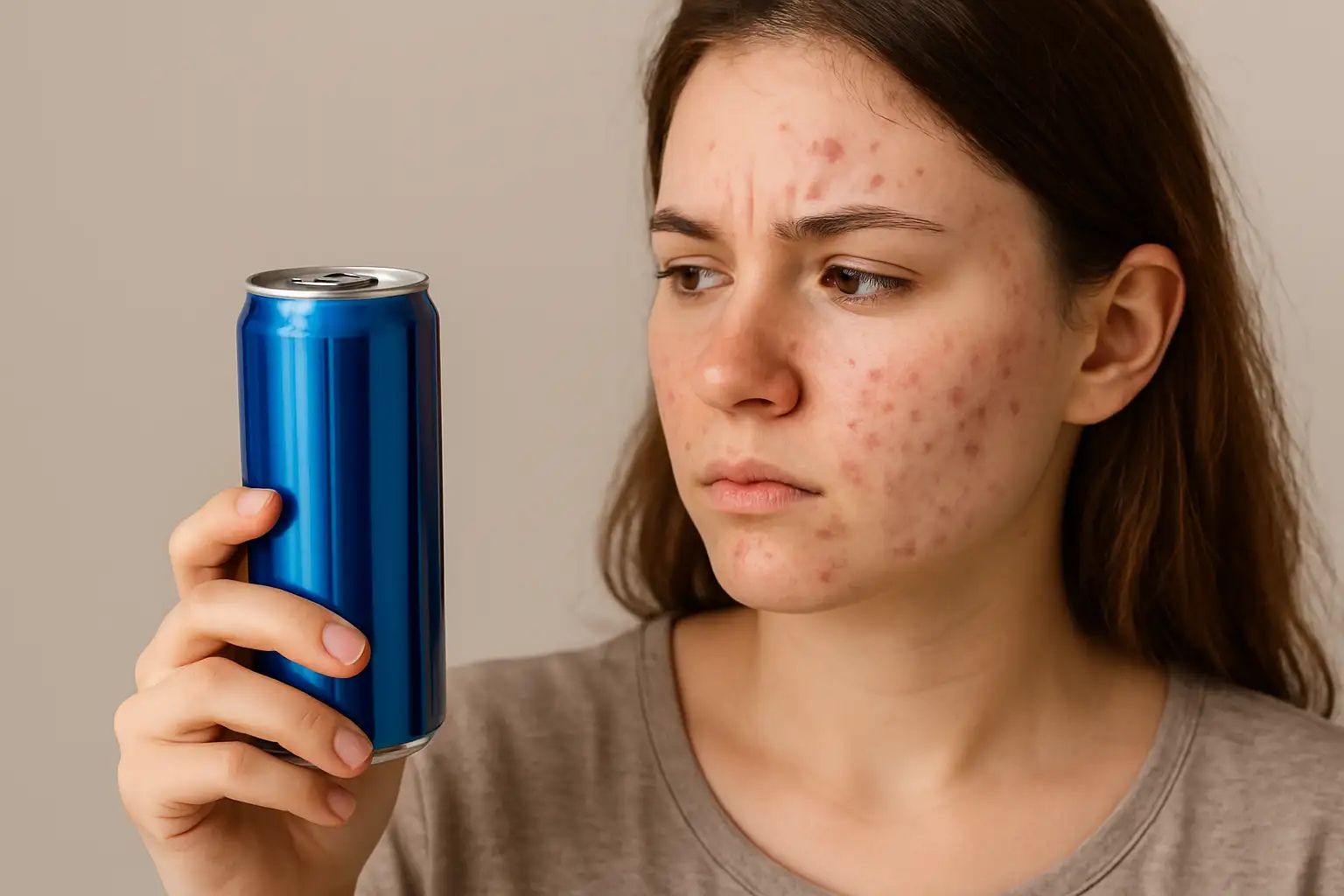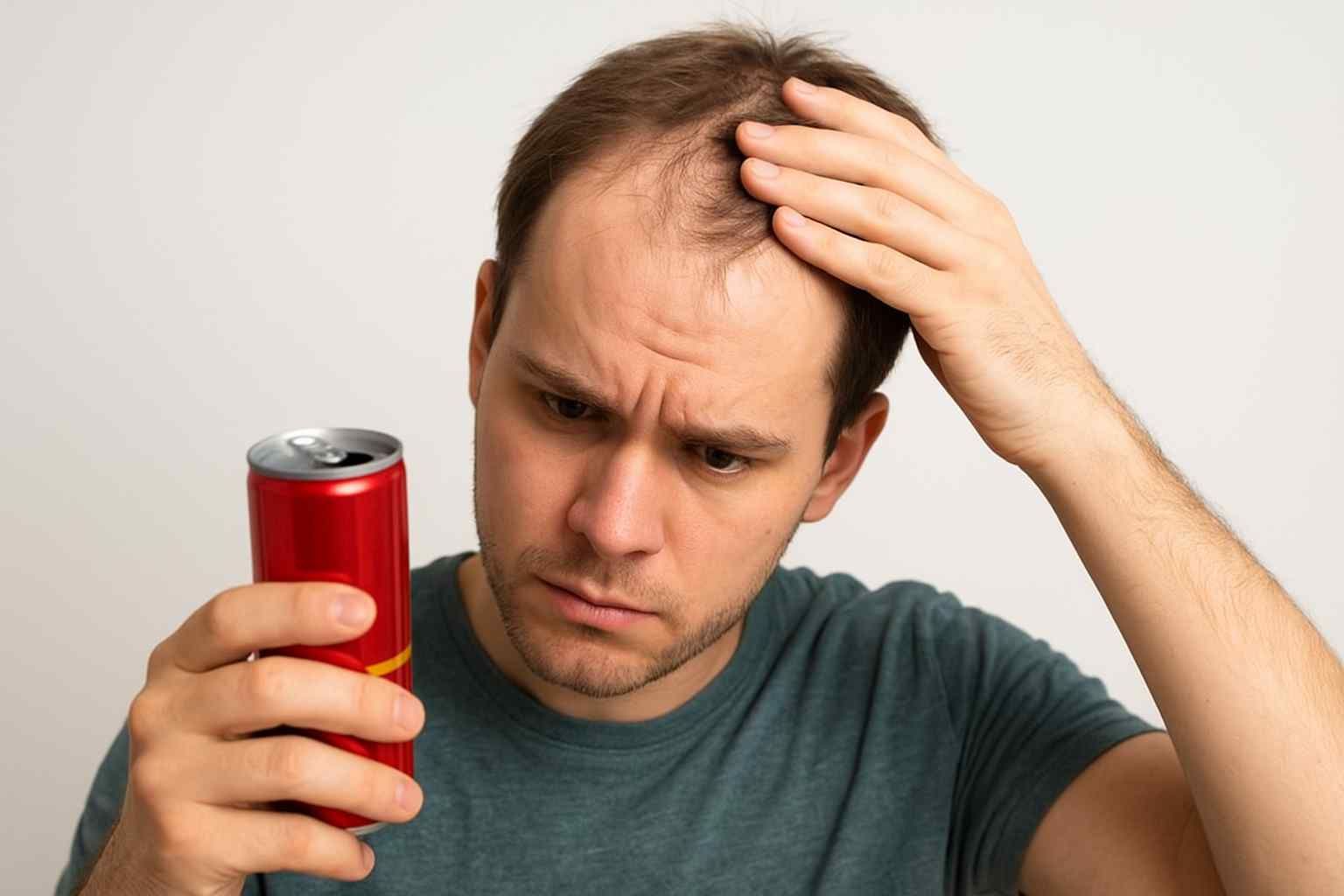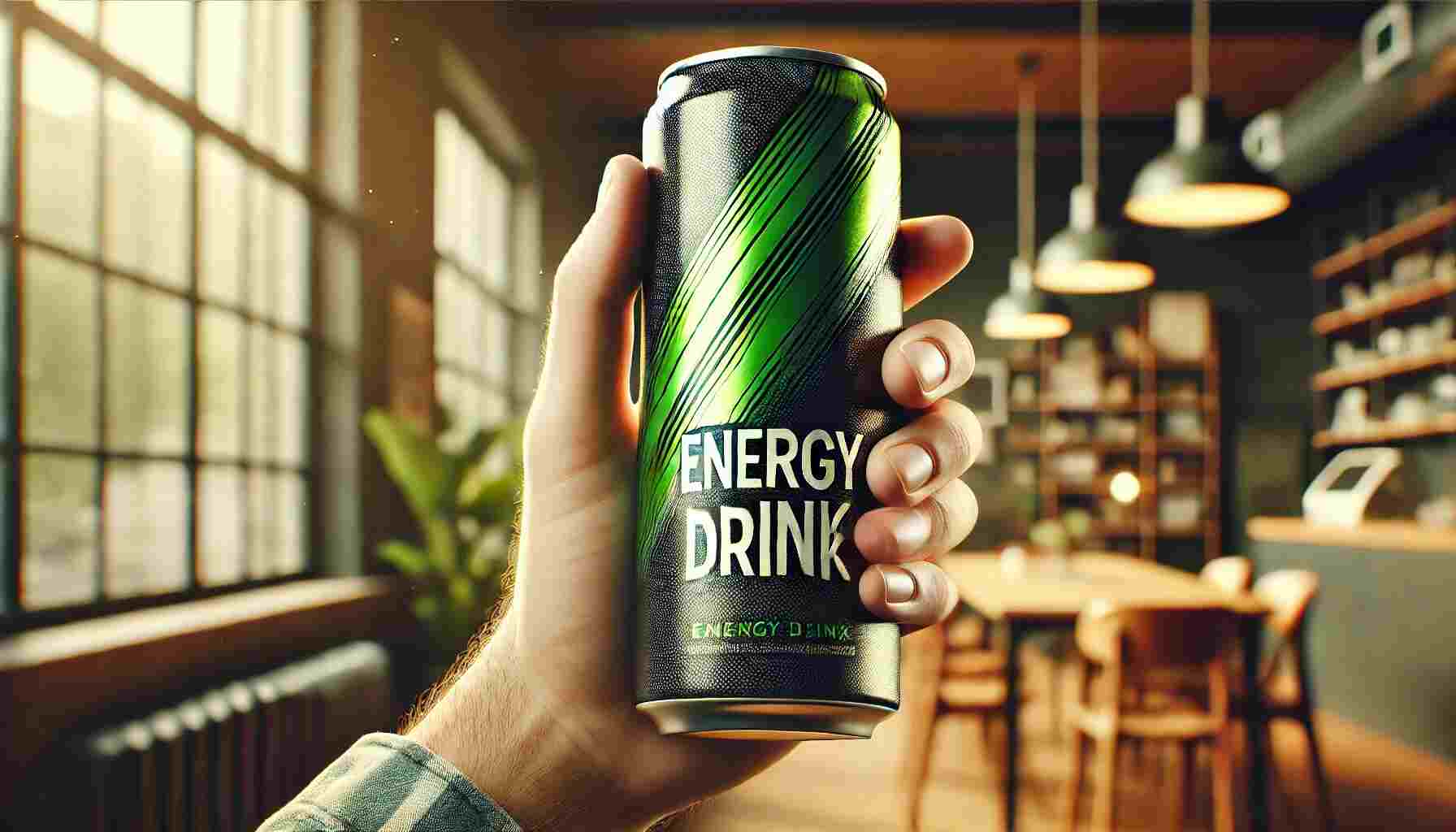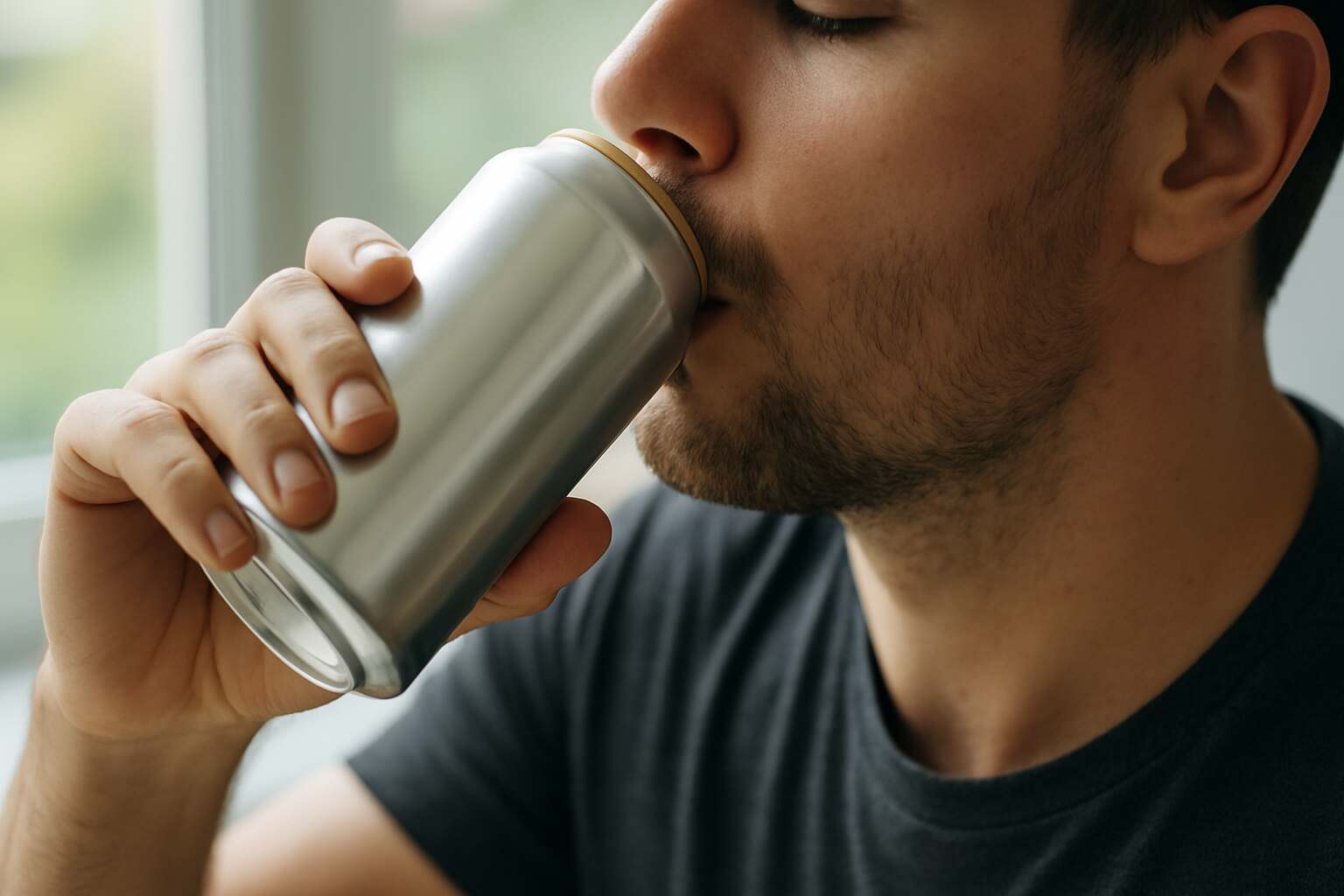Yes, energy drinks can cause acne — mainly due to their high sugar, caffeine, and artificial ingredient content. These components increase insulin levels, stress hormones (like cortisol), and inflammation, all of which stimulate excess oil production and clog pores.
Regular consumption can also disrupt hormonal balance, worsen sleep quality, and weaken skin barrier function, making breakouts more frequent and harder to heal.
How Energy Drinks Affect Your Skin
Energy drinks impact your skin through a combination of sugar spikes, caffeine overload, and inflammatory ingredients. The high sugar content in many popular brands can increase your blood glucose levels, leading to higher insulin production — a key factor behind excess oil and clogged pores. At the same time, caffeine can dehydrate the skin, disrupting its natural moisture barrier and causing irritation or dullness. Additives like taurine and artificial flavors may also trigger inflammation, worsening acne-prone skin. Over time, these effects can make your complexion appear oilier, rougher, and more sensitive. While energy drinks give a temporary boost in alertness, they can quietly sabotage your skin’s balance, especially when consumed frequently or alongside a poor skincare and diet routine.
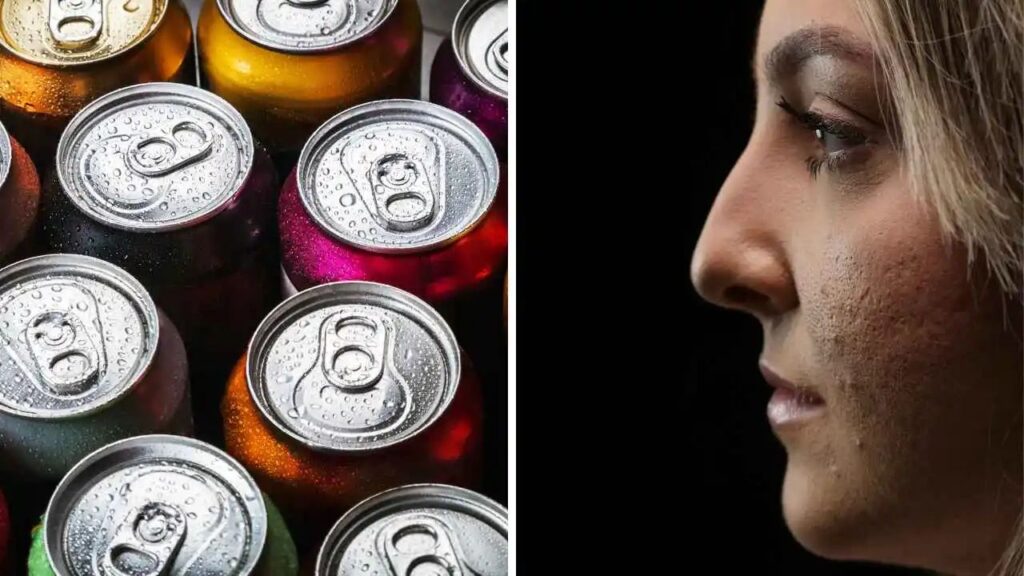
Sugar, Insulin, and Acne Breakouts
| Factor | Effect on Skin | Explanation / Details |
|---|---|---|
| High Sugar Content | Increases acne breakouts | Most energy drinks contain refined sugar that spikes blood glucose and insulin levels. Elevated insulin boosts oil production and inflammation, leading to more acne. |
| Insulin Spikes | Stimulates sebum and bacterial growth | High-glycemic drinks overstimulate sebaceous glands, increasing the likelihood of clogged pores and bacterial buildup. |
| Sugar + Caffeine Combo | Worsens hormonal acne | The combination intensifies hormonal responses, aggravating skin irritation and hormonal breakouts, especially around the jawline and forehead. |
| Artificial Sweeteners | Disrupts natural skin balance | Some sweeteners can trigger mild inflammation and affect skin microbiome health. |
| Reduced Intake | Improves overall skin clarity | Cutting down on sugary energy drinks helps restore hydration, balance oil levels, and support clearer, healthier skin. |
The Role of Caffeine and Dehydration
While caffeine can temporarily boost alertness, too much of it can negatively affect your skin. Caffeine in energy drinks acts as a diuretic, meaning it increases fluid loss through urination. This can lead to dehydration, leaving your skin dry, tight, and more prone to irritation. Dehydrated skin compensates by producing more oil, which can clog pores and worsen acne.
Additionally, high caffeine intake may elevate cortisol, the body’s primary stress hormone. When cortisol levels rise, so does inflammation — a known trigger for acne breakouts. Over time, this hormonal imbalance can disrupt your skin’s healing process, leading to longer-lasting blemishes. While moderate caffeine consumption is generally safe, relying heavily on energy drinks for daily energy can silently aggravate acne and compromise your skin barrier.
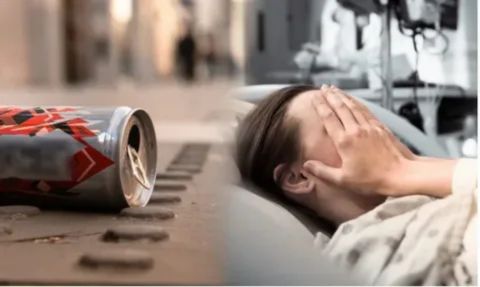
Ingredients That May Trigger Breakouts
Beyond sugar and caffeine, several common energy drink ingredients may trigger or worsen acne. Artificial additives, preservatives, and flavor enhancers can cause inflammation and irritation in sensitive or acne-prone skin. Ingredients like taurine and guarana, while often promoted for boosting focus, can overstimulate the nervous system and indirectly raise stress hormones that contribute to breakouts.
Some energy drinks are also fortified with B vitamins, particularly B12 and biotin. Although these nutrients support energy metabolism, excess amounts have been linked to breakouts in certain individuals. Studies show that high doses of B12 can alter skin bacteria and increase acne formation. Combined with artificial sweeteners and dyes, these additives may further irritate the skin. Reading labels carefully and limiting over-fortified or heavily processed drinks can help minimize acne-related flare-ups.
Who’s Most at Risk for Acne from Energy Drinks
Not everyone who drinks energy drinks will experience acne, but certain groups are more vulnerable. Teenagers and young adults are especially at risk because their hormones are already active, and excess sugar or caffeine can amplify oil production and inflammation. People with oily or acne-prone skin, or those who already struggle with hormonal imbalance, may also see breakouts worsen after frequent energy drink consumption.
Additionally, individuals with nutrient deficiencies — such as low zinc, vitamin A, or B6 — may find that energy drinks interfere with nutrient absorption and skin repair. Those under chronic stress or poor sleep face a double hit, since caffeine raises cortisol levels. For these groups, even moderate energy drink use can contribute to persistent or recurring acne flare-ups.
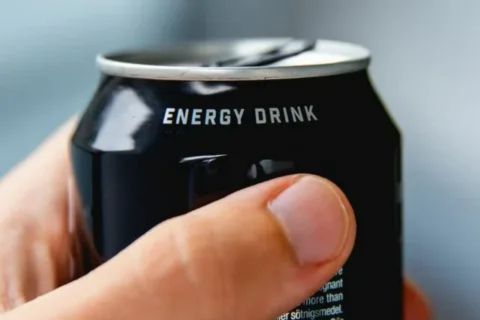
How to Prevent Breakouts While Consuming Energy Drinks
If you don’t want to give up energy drinks entirely, the key is moderation and smart choices. Start by limiting your intake to occasional use and avoid consuming multiple cans in a day. Choose low-sugar or sugar-free versions, but check the label for artificial sweeteners, which can also cause inflammation in some people. Always drink plenty of water alongside energy drinks to offset caffeine-induced dehydration and support your skin’s moisture balance.
Pair your energy intake with a skin-friendly diet — foods rich in zinc, omega-3s, and antioxidants help reduce acne and support healing. Avoid drinking on an empty stomach, as this can spike blood sugar and hormones. Finally, focus on consistent skincare: gentle cleansing, hydration, and non-comedogenic moisturizers help protect your barrier. By balancing your habits, you can enjoy energy drinks without compromising your skin’s clarity and health.
FAQs About Energy Drinks and Acne
Q1: Can energy drinks directly cause acne?
Not directly, but they can contribute to acne breakouts through high sugar, caffeine, and artificial additives. These ingredients increase insulin and cortisol levels, trigger inflammation, and over-stimulate oil glands — all of which create the perfect environment for acne to form.
Q2: Which ingredients in energy drinks are most likely to cause breakouts?
The biggest culprits are refined sugar, caffeine, and B vitamins like B12 and biotin. These can alter hormonal balance, promote excess oil, and irritate acne-prone skin. Artificial sweeteners, taurine, and preservatives can further aggravate sensitive complexions.
Q3: Can quitting energy drinks help clear my skin?
Yes. Many people notice clearer skin within a few weeks of reducing or eliminating energy drinks. When insulin levels stabilize and inflammation decreases, acne flare-ups tend to subside naturally.
Q4: Are there acne-safe alternatives to energy drinks?
Absolutely. Try green tea, matcha, or smoothies with natural ingredients like spinach, banana, and chia seeds. These provide a steady energy boost without the hormonal disruptions caused by energy drinks.
Q5: Do energy drinks affect everyone’s skin the same way?
No — your reaction depends on your skin type, hormones, and lifestyle. While some may tolerate occasional consumption without issue, others with oily or hormonal acne are more likely to experience breakouts. Listening to your body and watching for changes in your skin after drinking them is key to prevention.
